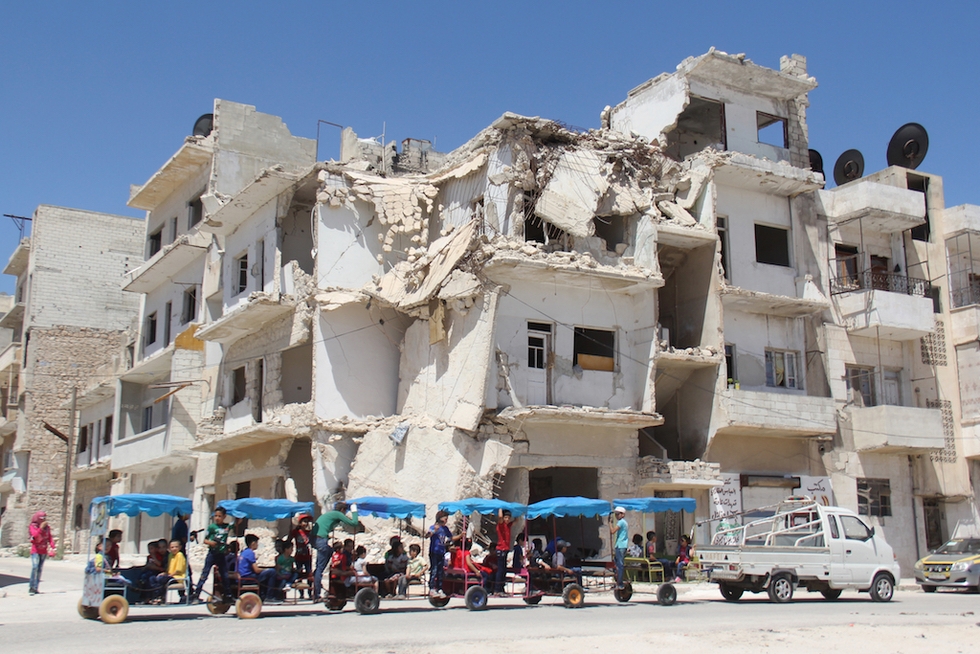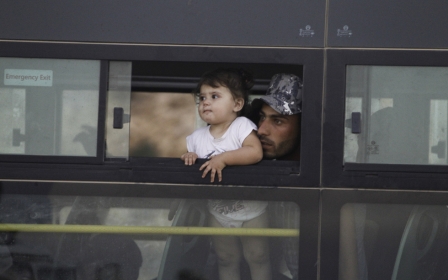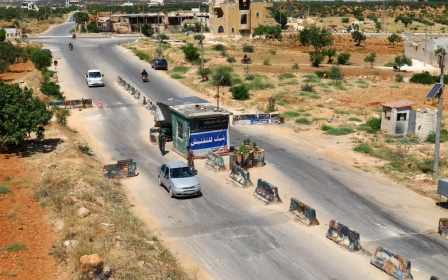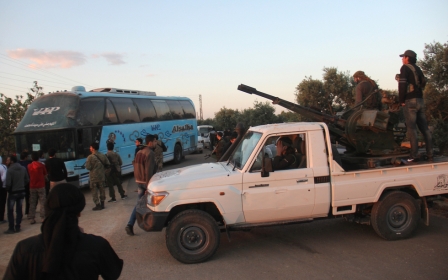Al-Qaeda affiliate seizes control of Idlib services from elected council

Former Al-Qaeda affiliate Hayat Tahrir al-Sham (HTS) has seized control of local facilities in Idlib from elected councillors in the city who refused to hand them over to the militant group.
Activist groups reported on Monday that fighters from HTS had captured the water management offices of Idlib City Council and expelled the employees.
The move follows the council's rejection of a formal request by HTS to turn over control of bakeries, water and transport to the "civil administration of services," a body controlled by the group.
The council said it was "freely elected" by the people of Idlib and would not recognise the HTS order.
"Recently taken decisions by 'civil adminstration of services' and accelerated and successive steps, especially with regards to the departments of the Idlib city council, are an attempt to make it submit to subordination, and the decisions were unilateral," read the statement.
"Our people in Idlib ... oh revolutionaries ... oh Syrians everywhere ... the Idlib city council will remain with you, it will not be dismissed and will not step down."
The council said it would be willing to subordinate services to a central body "provided there is an independent, recoginised civilian government".
HTS control over Idlib appears undisputed after they crushed their main rival in the province, the once-powerful Ahrar al-Sham.
Idlib fell to rebels in 2015 after a coalition composed of then-HTS incarnation the Nusra Front, Ahrar and others captured it from government forces.
Since then, however, tensions have emerged between Syrian opposition supporters and HTS, who are seen as having a transnational agenda at odds with the original aims of the Syrian uprising.
There have been repeated protests in recent months against HTS in Idlib, which have often been met with force.
Despite this, after repeated clashes, HTS was last month able to capture the Bab al-Hawa crossing between Syria and Turkey, previously one of Ahrar's most important strategic locations and a major source of revenue through border trade.
They also drove the group out of Idlib city, leaving the stronghold in HTS hands.
"HTS was willing to expend more resources, they were better organised, and slowly but surely they've been grinding down the LCCs [opposition council] in the area," Michael Stephens, a research fellow for Middle East studies at the Royal United Services Institute, recently told MEE.
He said they HTS was "pushing out other groups slowly but surely and then is able to absorb other groups pretty quickly who realised there was little point in resisting".
Idlib's city council was elected in January in the first civilian poll in the city since it came under the control of the opposition.
Only those aged 25 and over and originally from Idlib could vote for the 25-member council.
The elections came after lobbying from activists for the Army of Conquest coalition to allow civilian leadership of local services.
According to Mohammad al-Aref, a member of Idlib province's executive office, there are about 160 civilian-run councils across the province.
These bodies manage "health and educational affairs, as well as public services" of towns and villages.
Idlib's population has swelled in the past year, with tens of thousands of people displaced there by fighting or after evacuating besieged areas in other parts of Syria, including Aleppo.
Much life-saving humanitarian aid has continued to enter the province through Bab al-Hawa despite HTS's power grab, a Western diplomat told AFP.
Middle East Eye propose une couverture et une analyse indépendantes et incomparables du Moyen-Orient, de l’Afrique du Nord et d’autres régions du monde. Pour en savoir plus sur la reprise de ce contenu et les frais qui s’appliquent, veuillez remplir ce formulaire [en anglais]. Pour en savoir plus sur MEE, cliquez ici [en anglais].




